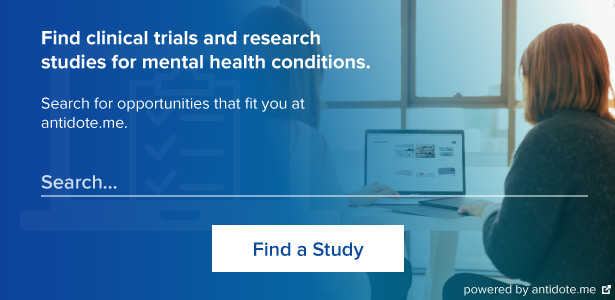Mental health conditions are complex, and research is critical to helping us understand more about them and how they affect people. There are many different types of research and ways for the public to participate in studies that are important to them.
Some studies focus on brain science and genetics, using advanced technologies to learn more about how mental illness develops. Researchers also study how people with mental health conditions interact with their families, health care workers and communities. These studies help design better ways to manage symptoms, training programs for health care workers, and policies for distributing community resources so that people can get the care they need, when they need it.
Clinical trials are also important in mental health research. They represent the final stage of testing new treatments, like medications or psychotherapies. In these trials, a treatment is often compared to a placebo or a different treatment. A participant will usually be “randomized” to receive either the new treatment or a placebo. Because of this randomization, the participant might receive therapeutic benefit, or they might not. Regardless of the role a person plays in a study, every clinical trial contributes to advancing scientific knowledge and helping people in the future. For more information on this topic, please see NIMH’s Questions & Answers document.
Protecting Study Participants
NAMI advocates that any research involving human subjects must be conducted in accordance with the highest scientific, medical and ethical standards. This is necessary to protect the individuals and families who contribute to scientific progress by participating in clinical trials. NAMI specifically stresses that:
- Research subjects choose to participate in studies only after they understand the risks of being in the study, as well as possible benefits. They (and, in many cases, their families) need to fully understand the study protocols, i.e., exactly how the study will work and what their roles will be.
- Researchers fully explain what protections are in place for storage, maintenance and sharing of any data collected (including genetic samples).
- Researchers perform independent and ongoing evaluations of a research subject’s capacity to consent.
- Institutional Review Boards include people experiencing mental illness and/or family members.
- Individuals may withdraw from a study at any time without penalty.
- At the end of the study — or if a person withdraws participation prematurely — effective treatment and aftercare are ensured, as is feedback on study results.
- For genetic research, there should be clear information about the protections related to your privacy and how genetic information will be used and shared with other researchers.
Several government and private industry organizations are dedicated to protecting the rights and safety of scientific study and clinical trial volunteers. For more information, please visit their webpages.
- Office for Human Research Protections
- NIMH Human Subjects Protection Unit
- National Institutes of Health Bioethics Resources
- Public Responsibility in Medicine and Research (PRIM&R)
Becoming A Study Participant
Before you participate in a clinical trial or scientific study, make sure you can answer the following questions:
- What is the trial/study about?
- What will you be asked to do?
- What risks might you face?
- Has an Institutional Review Board (a group of scientists, doctors, clergy and patient advocates that review and approve the detailed plan for every clinical trial) approved the study?
- Whom do you contact with questions, concerns or problems?
- Will you be informed about the progress and results of the study?
Remember that all participation in research is voluntary and not considered part of your treatment plan. Please consider consulting your doctor/care team before participating in a study.
Finding A Study
Although there are countless valuable research studies and clinical trials in progress at any moment, NAMI would like to highlight a few that are particularly valuable to our members and the mental health advocacy community.
- The All Of Us Research Program is a historic effort to gather health, environment, and genetic data from one million or more volunteers living in the United States. Rather than focusing on one population or one health condition, All Of Us will create a diverse body of information allowing researchers to conduct creative studies on mental and physical health.
- The Brain Donor Project collects human brain tissue for research. When a person with a psychiatric or neurological condition chooses to donate brain tissue after their death, researchers can conduct incredibly valuable genetic and molecular studies.
To explore available opportunities to volunteer as a research study participant, you may use the search tool below. Begin by entering the mental health condition that is relevant to your experience. Please note that by using this tool, you will leave NAMI.org and access your search results on Antidote’s website.

To further increase awareness of ongoing mental health research, NAMI National creates “Research Opportunity Announcements” for our grassroots leaders to share within their communities. Promoted research may be conducted by government, academic or private industry partners, or any other entity that has secured IRB approval/exemption for their study.
As we take our role in sharing this information very seriously, all studies selected for promotion have been thoroughly reviewed to ensure the safety of those involved. If you have any questions about Research Opportunity Announcements or a study that has been shared by NAMI, please contact us at research@nami.org.

